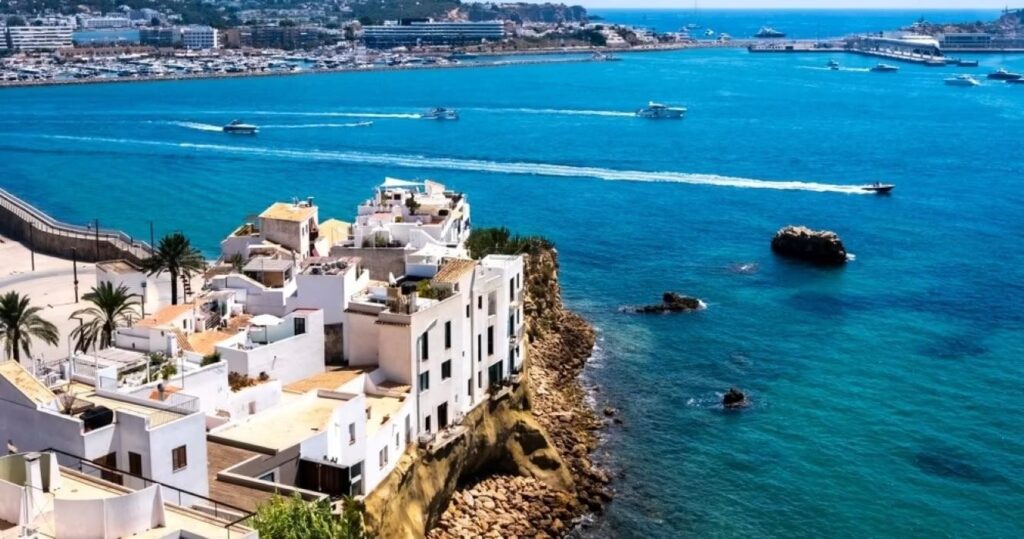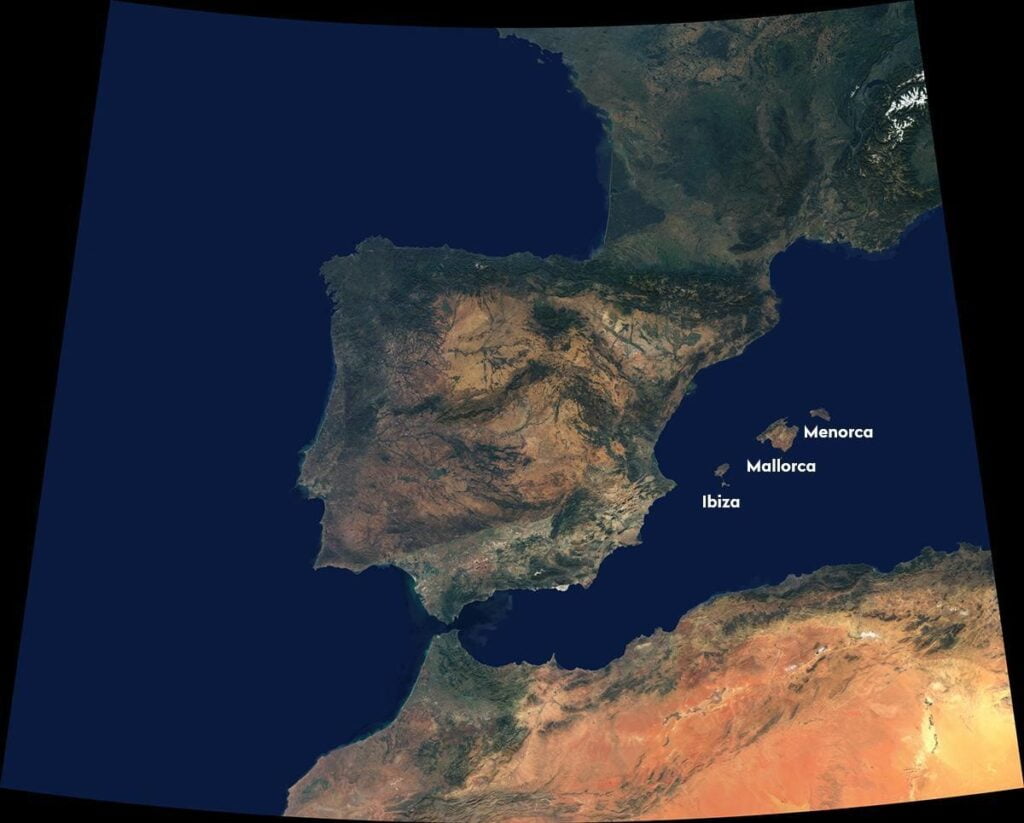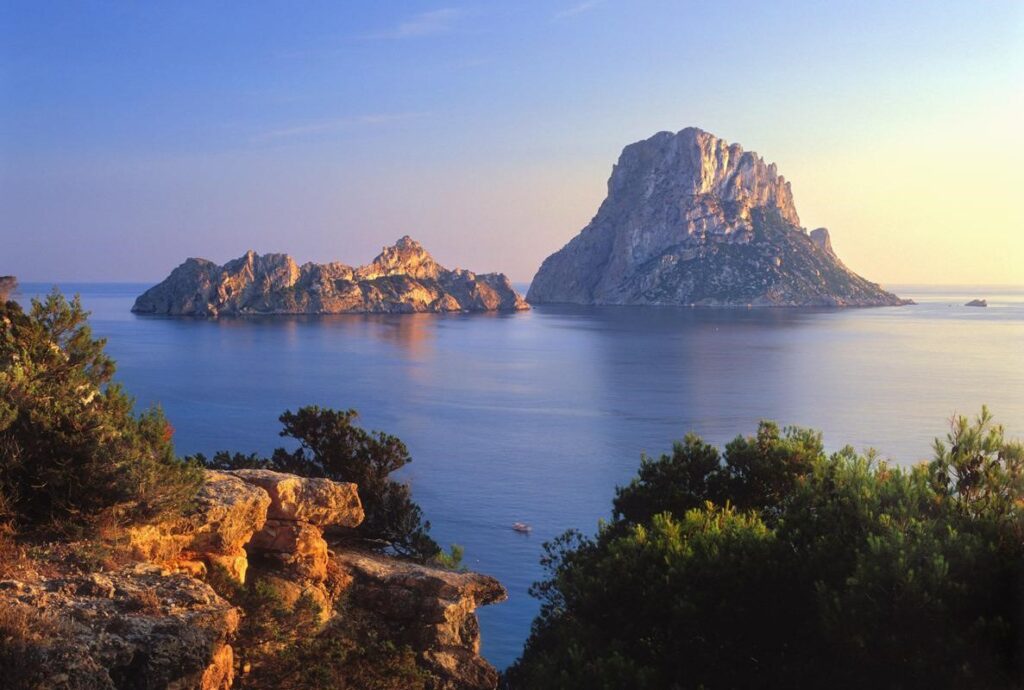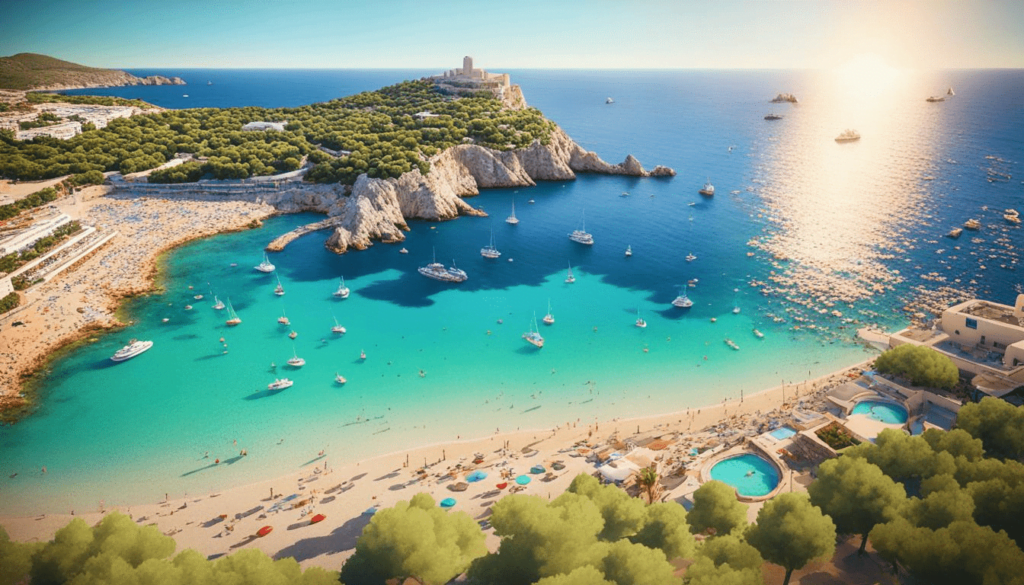Ever heard of the White Isle? It's a popular destination in the Mediterranean Sea, known for its stunning beaches, vibrant nightlife, and laid-back atmosphere. That's Ibiza for you!

Located in the sparkling Mediterranean Sea, Ibiza is a small island that's big on charm and character.
This stunning Spanish island, affectionately known as the "White Island", is part of the Balearic Islands archipelago, which also includes the beautiful islands of Mallorca, Menorca, and Formentera.

Ibiza's strategic location, just 79 kilometers east of the Spanish mainland, has made it a prized possession for many civilizations throughout history.
Ibiza's history dates back over 2,500 years, when the Phoenicians first established a thriving trading post on the island.
Over the centuries, the island has been conquered and influenced by various civilizations, each leaving their unique mark on the island's culture and architecture.
1. The Punic Necropolis: A Window to the Past

Discover the world's most extensive and best-preserved necropolis, with over 5,000 tombs dating back to ancient times.
This cemetery was once the heart of the city of Ibiza, and its sheer size reveals the island's importance during the Carthaginian Empire.
2. The Pitiusa Islands

Ibiza was once home to the Greeks, who fell in love with its natural beauty and named it one of the Pitiusa Islands.
Here begins the mixture of cultures that left traces in this emblematic place.
3. Yebisah: The Muslim Era

Later, the island was ruled by the Muslims, who called it Yebisah and left their mark on the Dalt Vila, a historic fortified area in Ibiza Town.
4. Pirate Center

Ibiza's history takes a dramatic turn during the Modern Age, when the island became a hotbed of pirate activity. The Berber pirates, infamous for their raids on Mediterranean towns, made Ibiza a regular target.
5. Fortified Walls

Ibiza was a hotbed of pirate activity. To defend themselves, the islanders built defensive churches and towers, and in 1554, Emperor Philip II ordered the construction of massive fortified walls around the city.
Today, these walls are a symbol of the island's resilience and a World Heritage Site.

While many assume that Spanish is the official language of Ibiza, the island actually has its own distinct language: Catalan. But that’s not all - Ibiza also has its own regional dialect, known as Ibizan.
This means that the locals are fluent in multiple dialects, making it easy for visitors to communicate and connect with the island's vibrant culture.
Also, as a member of the European Economic Community, Ibiza uses the Euro as its official currency.

Make the most of your day in Ibiza with these top recommendations:

The island's fortunes began to change in 1868, when investments from Cuba and the establishment of regular shipping services with the mainland helped to stimulate growth.

In the mid-20th century, Ibiza experienced a surge in tourism, particularly among young people. The island's natural beauty and vibrant nightlife made it a magnet for hippies and partygoers.
Today, Ibiza is one of Spain's top tourist destinations, offering a unique blend of stunning landscapes, beautiful beaches, and vibrant nightlife.
Visitors can enjoy the island's rich history, explore its natural parks, and experience the world-famous clubs and parties.
If you're looking for a destination that offers something for everyone, Ibiza is the perfect choice. With its stunning natural beauty, rich history, and vibrant nightlife, Ibiza is a must-visit destination for anyone looking for an unforgettable experience.